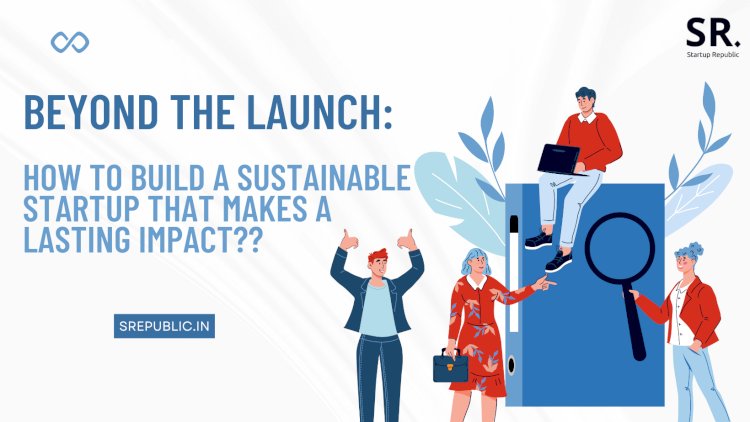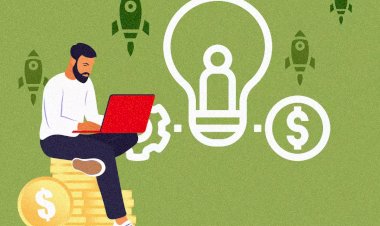Beyond the Launch: How to Build a Sustainable Startup that Makes a Lasting Impact
Starting a business is a challenging endeavor, and building a sustainable startup that can last for the long-term is even more difficult. However, sustainable startups are vital to the economy and society as a whole, as they create jobs, foster innovation, and solve real-world problems. In this blog, we’ll discuss some key strategies for building a sustainable startup that lasts.

Develop a Solid Business Plan
The first step in building a sustainable startup is to develop a solid business plan. A business plan outlines the mission, goals, and strategies of a startup and helps entrepreneurs focus on the key elements of their business. A well-developed business plan should include a market analysis, marketing strategy, financial projections, and an operations plan. The plan should be updated regularly to ensure it remains relevant and aligned with business goals.
Foster a Strong Company Culture
Building a sustainable startup requires more than just a great product or service; it requires a strong company culture. Company culture is the shared values, beliefs, and behaviors that shape the workplace environment. A positive company culture can lead to higher employee morale, productivity, and retention rates. Startups should focus on creating a culture that promotes transparency, collaboration, and innovation.
Emphasize Sustainability in Business Practices
To build a sustainable startup, entrepreneurs should focus on incorporating sustainable practices into their business operations. This includes reducing waste, using environmentally friendly products, and promoting social responsibility. Startups can also leverage sustainable practices as a unique selling proposition, appealing to customers who are environmentally conscious and socially aware.
Diversify Revenue Streams
One of the key challenges for startups is maintaining a steady revenue stream. To build a sustainable startup, entrepreneurs should focus on diversifying their revenue streams. This can be achieved by developing multiple products or services, expanding into new markets, or offering additional value-added services to existing customers. Diversifying revenue streams can help startups weather economic downturns and reduce their reliance on a single revenue source.
Continuously Innovate
Innovation is critical to building a sustainable startup that lasts. Startups should continuously innovate to stay ahead of the competition and meet the evolving needs of their customers. This can include developing new products or services, adopting new technologies, or improving existing processes. Startups should also encourage innovation from their employees by providing them with the necessary resources and support to develop new ideas.
Build Strong Partnerships
Finally, building strong partnerships can help startups build a sustainable business. Partnerships can provide startups with access to new markets, technologies, and resources. Startups should focus on developing partnerships with organizations that share their values and goals, and that can provide mutual benefits.
Conclusion
Building a sustainable startup that lasts requires careful planning, strategic thinking, and a strong commitment to sustainability, innovation, and collaboration. By following these key strategies, entrepreneurs can increase the likelihood of building a successful and sustainable business that can make a positive impact on society and the economy.























